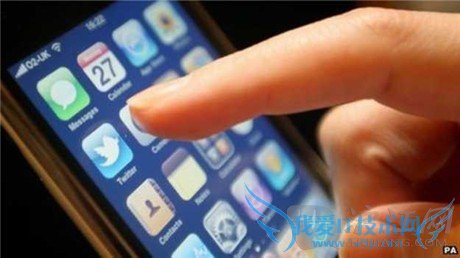��ӭ������52ijӢ��������������С��Ϊ�������Ӣ��֪ʶ�ǣ�����ҹè�ӣ��ֻ�Ӱ��˯�� ˯ǰ�����ֻ���������������ϸ�ķ�����
��ҹè�ӣ��ֻ�Ӱ��˯�� ˯ǰ�����ֻ���

More than nine out of 10 young people expose themselves to the blue light from smartphones and tablets, before bed, causing problems with sleep.90%��������˯ǰ�����������ֻ���ƽ����Ե�ϰ�ߣ�����ʵ��Ӱ�����˯��Ŷ��
A new survey also shows more than 28m people in the UK regularly get no more than seven hours sleep a night.һ���µ��о����֣�Ӣ��Լ2800����˯�߲���7Сʱ��
Prof Richard Wiseman, who commissioned the YouGov poll described the findings as "extremely worrying".Ӣ�������Ĵ�������ѧ��������¡���˹������ε���ķ����ˣ���������εĽ�����֡��dz����˾��ġ���
Of the 2,149 adults questioned, 78% said they used electronic devices before going to bed. This rose to 91% among the 18 to 24-year-olds questioned in the survey.�ڱ������2149λ�����У�78%��ʾ����˯ǰ��ʹ�õ����豸������18-24��ĵ�������˯ǰ���ֻ������������91%��
Getting less than seven hours sleep a night is below the recommended guidelines, and is associated with a range of problems, including an increased risk of weight gain, heart attacks, diabetes and cancer.˯�߲���7Сʱ��������ֵ�������һϵ�еĽ������⣬�����������ӡ����ಡ�������Լ���֢��
"The blue light from these devices suppresses the production of the sleep-inducing hormone melatonin, so it's important to avoid them before bed time," said Prof Richard Wiseman, from the University of Hertfordshire.�������豸�����������谭���շ�˯�ߺɶ��ɿ��ڱ伤�صIJ���������˯ǰ��ò�Ҫ���ֻ�����
Everyone needs different amounts of sleep, but adults are generally thought to require a minimum of seven to eight hours a night. Teenagers are recommended to get more, about nine hours.ÿ���˶���Ҫ��ͬʱ������˯�ߣ�������һ�����������Ҫ�ߵ���Сʱ�����������˯���ٶ�㣬��ž�Сʱ�����ӡ�
The proportion of people thought to be getting too little sleep had risen by a fifth since a "bedroom poll" conducted last year by the National Sleep Foundation.�����ȥ�����˯��Э��ġ�˯ǰ���С���˵��˯�����ز���������Ѿ������ǵ�20%��
The people surveyed were asked if they used a computer, tablet or smartphone in the two hours before bed. They were also asked about dreams and just one in ten agreed with the statement: "I would describe my dreams as pleasant."�������߾����ʼ��Ƿ�˯ǰ��Сʱʹ�ù����ԡ�ƽ����Ի��ֻ���ͬʱ����ѯ�����ǵ��ξ���ֻ��10%�������ƣ��������˸����Ρ���
Last week it was revealed opticians were warning that overuse of smartphones may be increasing people's risk of eye damage. Optician Andy Hepworth said: "Blue violet light is potentially hazardous and toxic to the back of your eyes.���ܣ������ʦ�������ʹ���ֻ��������۾����˵ķ��ա����ʦ���ϡ�������˼˵�������ϹⱾ���Ͷ��۾��к�����
"So over a long period of time it can potentially damage your eyes. When you're looking at a smart phone, the light peaking out of that is blue violet.�����Գ�ʱ��֮��������۾�����ʹ���ֻ�ʱ�����Ĺ�������Ϲ⡣��
The news came as a survey of 2,000 people suggests under-25s check their phones 32 times a day.������鷢�֣�25�����µ�2000λ��������һ��Ҫ�鿴�ֻ�32�Ρ�
- �����б����������۽������ѱ�����˿���������������վͬ����۵��֤ʵ��������
-
